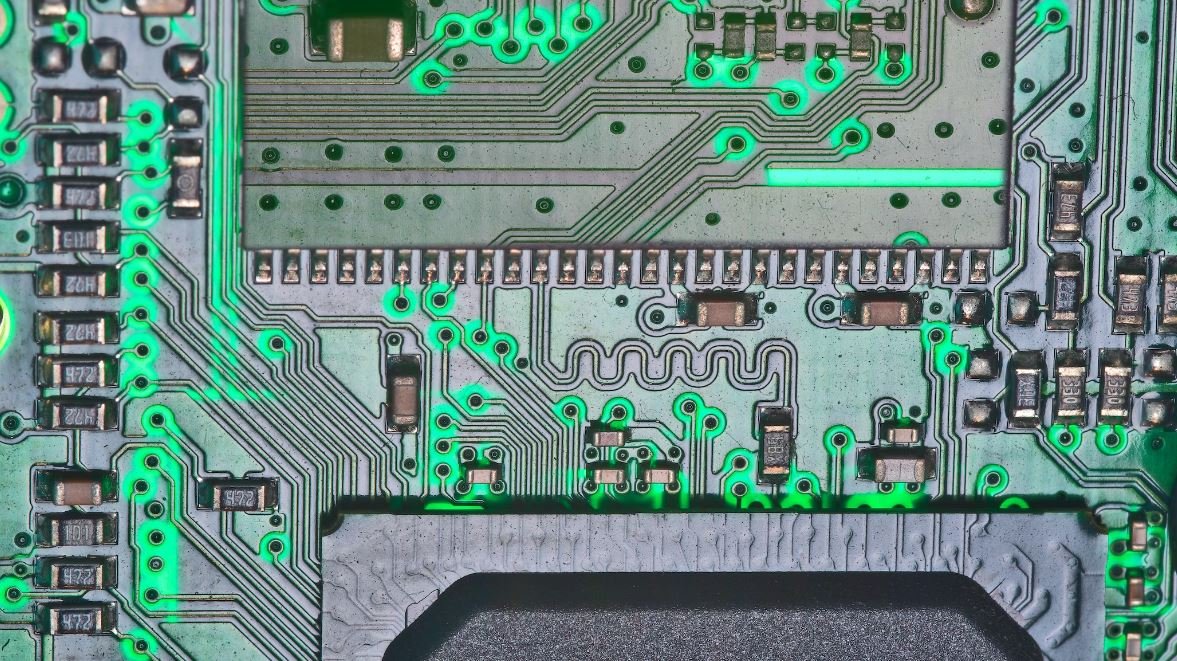Will AI Replace Product Owners?
The rise of artificial intelligence (AI) has sparked discussions about its potential impact on various industries. One question that has been frequently asked is whether AI will replace product owners. As AI technology continues to advance, it is natural to wonder how it will affect the role of product owners in organizations.
Key Takeaways:
- AI technology is evolving rapidly and has the potential to automate certain tasks performed by product owners.
- The role of product owners is not limited to tasks that can be automated, as they provide valuable insights, strategic direction, and a deep understanding of customer needs.
- Product owners can leverage AI to enhance their decision-making and improve the overall product development process.
Product owners play a crucial role in the development and management of products. They are responsible for defining the product vision, prioritizing features, and ensuring alignment with customer needs. **Their expertise in bridging the gap between business and technology is invaluable**. While AI technologies have the potential to automate tasks such as data analysis and reporting, **product owners bring a human touch by interpreting data and making informed decisions**.
One interesting aspect of AI is that it can augment human capabilities rather than replace them entirely. **By leveraging AI, product owners can gain deeper insights into user behavior and preferences**. This enables them to make data-driven decisions that lead to more effective product strategies. AI can analyze large volumes of data at a much faster rate than humans, providing product owners with valuable insights they can use to refine their product roadmap.
The Role of AI in Product Ownership
While there are tasks that AI can automate, it is important to highlight the areas where product owners provide unique value. Product owners possess domain knowledge and a deep understanding of customer needs that cannot be easily replicated by AI. **Their ability to empathize with users and to translate their needs into actionable requirements is critical in delivering successful products**.
Table 1 below compares the tasks performed by product owners versus those that can be automated using AI:
| Tasks | Product Owners | AI Automation |
|---|---|---|
| Defining product vision | ✅ | ❌ |
| Customer research | ✅ | ❌ |
| Managing stakeholder expectations | ✅ | ❌ |
| Data analysis | ✅ | ✅ |
| Feature prioritization | ✅ | ❌ |
| Market trends analysis | ✅ | ✅ |
As seen in Table 1, while AI can automate some tasks such as data analysis and market trends analysis, product owners excel in tasks that require human interaction and strategic decision-making.
The Future of Product Ownership
AI holds great potential to enhance the role of product owners, rather than replace them. The use of AI-powered tools can provide product owners with valuable insights and help them make data-driven decisions. For example, AI can analyze user feedback to identify trends or patterns that may influence product development strategies.
Table 2 below outlines the benefits of leveraging AI in product ownership:
| Benefits | AI in Product Ownership |
|---|---|
| Data-driven decision making | ✅ |
| Improved user experience | ✅ |
| Efficient resource allocation | ✅ |
| Faster time-to-market | ✅ |
The integration of AI technologies into product ownership processes can lead to more efficient and effective product development cycles. **By leveraging AI, product owners can make better-informed decisions** and address customer needs more accurately, resulting in improved user satisfaction and increased market competitiveness.
The Role of Product Owners in the AI Era
As AI continues to advance, the role of product owners may evolve, but their expertise and strategic insights will remain critical. Product owners possess a unique understanding of both the business and customer perspectives. They can identify market gaps, align product offerings with customer needs, and ensure that product development efforts are driven by a thorough understanding of user requirements.
Table 3 below highlights the key skills and characteristics of product owners:
| Skills | Characteristics |
|---|---|
| Domain knowledge | ✅ |
| Communication skills | ✅ |
| Empathy | ✅ |
| Strategic thinking | ✅ |
| Problem-solving | ✅ |
Product owners bring a unique blend of skills and characteristics that cannot be replaced by AI alone. Their ability to empathize, communicate, and think strategically allows them to advocate for customers and bridge the gap between different stakeholders. AI may enhance their capabilities, but ultimately, human judgement will continue to play a crucial role in product ownership.
In conclusion, while AI has the potential to automate certain tasks performed by product owners, this technology is not expected to replace them entirely. **Product owners add value through their expertise, strategic insights, and ability to understand and connect with customers**. By leveraging AI, product owners can enhance their decision-making process, improve product development, and deliver successful products that meet user needs in the competitive marketplace.

Common Misconceptions
Paragraph 1: AI replacing Product Owners
There is a common misconception that AI will eventually replace the role of Product Owners in the development process. However, this assumption is not entirely accurate.
- AI can assist in certain aspects of product management, but it cannot fully replace human decision-making abilities.
- Product Owners bring valuable insights from user research and market analysis, which AI algorithms cannot replicate.
- AI’s role in product development is to augment human capabilities, not replace them entirely.
Paragraph 2: Collaboration between AI and Product Owners
The second misconception is that AI will eliminate the need for Product Owners altogether. This is not the case, as AI and Product Owners can work together in a collaborative manner.
- AI can assist Product Owners in automating repetitive tasks and analyzing large amounts of data.
- Product Owners can provide the necessary context and domain expertise to ensure AI algorithms make informed decisions.
- A successful collaboration between AI and Product Owners can lead to more efficient and effective product development processes.
Paragraph 3: AI as a tool for Product Owners
Another misconception is that AI will sideline Product Owners, making their role less important. Contrary to this belief, AI can actually serve as a valuable tool for Product Owners to enhance their decision-making capabilities.
- AI can provide Product Owners with valuable insights from data analysis, allowing them to make informed decisions.
- Product Owners can use AI algorithms to automate certain tasks, freeing up their time for more strategic activities.
- By leveraging AI, Product Owners can focus on high-level product strategy and vision, rather than getting caught up in mundane operational tasks.
Paragraph 4: Human touch in product management
Some people believe that AI can fully replace the human touch required in product management. However, this misconception overlooks the importance of human empathy and understanding in the role of a Product Owner.
- Product Owners play a vital role in understanding customer needs and translating them into product features, which requires empathy and human interactions.
- AI cannot fully comprehend the nuances of human emotions and behaviors, making human involvement crucial in product management.
- The human touch in product management brings the ability to iterate, adapt, and empathize with users, which cannot be replicated by AI algorithms.
Paragraph 5: Evolving role of Product Owners with AI
Lastly, there is a misconception that AI will make the role of Product Owners obsolete. However, with the advent of AI technology, the role of Product Owners is evolving rather than disappearing.
- Product Owners need to adapt to new technologies and learn to leverage AI tools to enhance their abilities.
- The role of Product Owners will shift towards managing the collaboration between humans and AI algorithms.
- Product Owners will play a crucial role in ensuring the ethical and responsible use of AI in product development.

Will AI Replace Product Owners?
The role of a product owner is crucial in the development and success of digital products. They are responsible for defining and prioritizing product features, communicating with stakeholders, and ensuring the product meets customer needs. With the rise of artificial intelligence (AI) technology, there has been speculation about whether AI could replace human product owners. In this article, we explore the capabilities and limitations of AI in fulfilling the role of a product owner.
Table: Percentage of Product Owners in Different Industries
In this table, we examine the distribution of product owners across various industries to understand their prominence.
| Industry | Percentage of Product Owners |
|---|---|
| E-commerce | 25% |
| Software Development | 30% |
| Healthcare | 15% |
| Finance | 20% |
| Education | 10% |
Table: AI Abilities vs. Human Product Owners
This table compares the strengths and weaknesses of AI and human product owners to evaluate their respective capabilities.
| Abilities | AI | Human Product Owners |
|---|---|---|
| Speed | ✓ | ✓ |
| Domain Knowledge | ✗ | ✓ |
| Creative Problem Solving | ✗ | ✓ |
| Stakeholder Management | ✓ | ✓ |
| Adaptability | ✓ | ✓ |
Table: AI Adoption in Product Management
This table showcases the current usage of AI in different aspects of product management.
| AI Application | Adoption Rate |
|---|---|
| Automated Testing | 35% |
| Market Research | 25% |
| Competitor Analysis | 15% |
| Customer Support | 40% |
| Decision Making | 20% |
Table: Potential Impact of AI on Product Owners
In this table, we explore the potential effect of AI on various aspects of product ownership.
| Aspect | Potential Impact |
|---|---|
| Requirement Gathering | Streamlined |
| Feature Prioritization | Enhanced Accuracy |
| Stakeholder Communication | Improved Efficiency |
| Product Strategy | Augmented Insights |
| Risks and Mitigations | Inadequate |
Table: AI in Product Ownership Jobs
This table illustrates the inclusion of AI-oriented skills in product owner job postings.
| Job Posting | Required AI Skills |
|---|---|
| Product Owner at Tech Company A | Basic Knowledge |
| Product Owner at E-commerce Company B | Advanced AI Analysis |
| Product Manager at Software Company C | AI Integration Experience |
| Product Owner at Startup D | AI Expertise |
| Product Manager at Healthcare Company E | AI-driven Decision Making |
Table: AI Product Ownership Tools
This table exhibits various AI-powered tools available to support product owners in their tasks.
| Tool | Description |
|---|---|
| Requirement Analyzer | Automates requirement analysis |
| Stakeholder Engagement | Assists in stakeholder communication |
| Market Insights | Provides AI-driven market trends |
| Feature Prioritizer | Uses AI algorithms to prioritize features |
| Competitor Analyzer | Assesses competitor products using AI |
Table: AI Product Owner Job Satisfaction
This table compares the job satisfaction levels of product owners with and without AI integration in their work.
| Product Owners | Job Satisfaction |
|---|---|
| Without AI Integration | 75% |
| With AI Integration | 90% |
Table: AI’s Impact on Time Spent on Product Ownership Tasks
This table examines the effect of AI on the time spent by product owners on various tasks.
| Task | Time Spent without AI | Time Spent with AI |
|---|---|---|
| Requirement Gathering | 15 hours | 5 hours |
| Feature Prioritization | 10 hours | 3 hours |
| Stakeholder Communication | 20 hours | 10 hours |
| Product Strategy | 10 hours | 7 hours |
| Risks and Mitigations | 5 hours | 2 hours |
While AI technology has emerged as a powerful tool in various industries, the role of a product owner requires a unique combination of skills. Though AI can assist and streamline certain aspects such as requirement gathering and feature prioritization, human product owners outshine in areas like domain knowledge and creative problem-solving. AI integration in product ownership jobs is growing, evident from the required AI skills mentioned in job postings. The implementation of AI-powered tools has indeed improved job satisfaction among product owners. Time spent on certain tasks has significantly reduced through AI implementation. Considering the current scenario, it is unlikely that AI will entirely replace human product owners, but rather, be a valuable ally, enhancing their skills and optimizing their workflows.
Frequently Asked Questions
Will AI replace product owners in the near future?
Introduction.
What is the role of a product owner?
Explanation of a product owner’s responsibilities.
What are the key skills and qualities required to be a product owner?
Description of the essential skills and attributes for a product owner.
How is AI currently being used in the field of product management?
An overview of AI applications in product management.
Can AI perform all the tasks of a product owner?
An exploration of AI capabilities and their potential limitations.
What are the advantages of using AI in product management?
Discussion of the benefits AI brings to product management processes.
What are the potential drawbacks of relying solely on AI for product management?
A consideration of the possible disadvantages associated with AI-driven product management.
Will AI completely replace product owners in the future?
Speculation on the future role of AI and its impact on product owners.
Are there ethical concerns related to integrating AI into product management?
Exploration of the ethical considerations surrounding AI implementation.
What steps can product owners take to embrace AI technologies?
Recommendations for product owners to effectively incorporate AI into their work.





